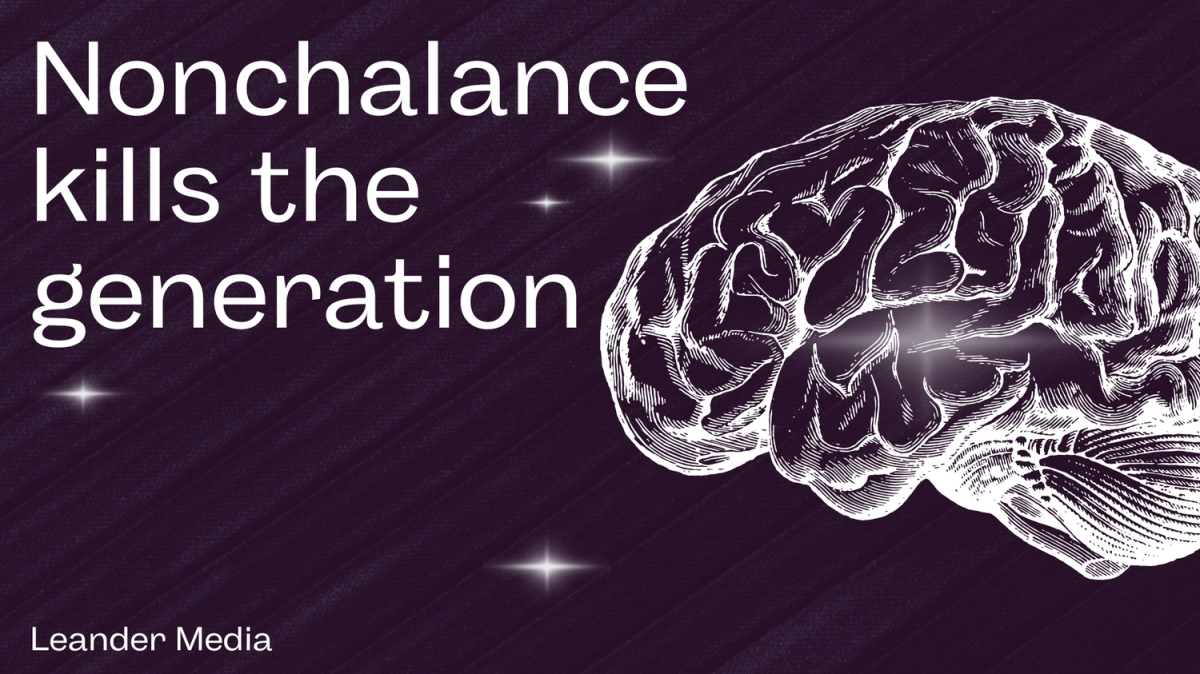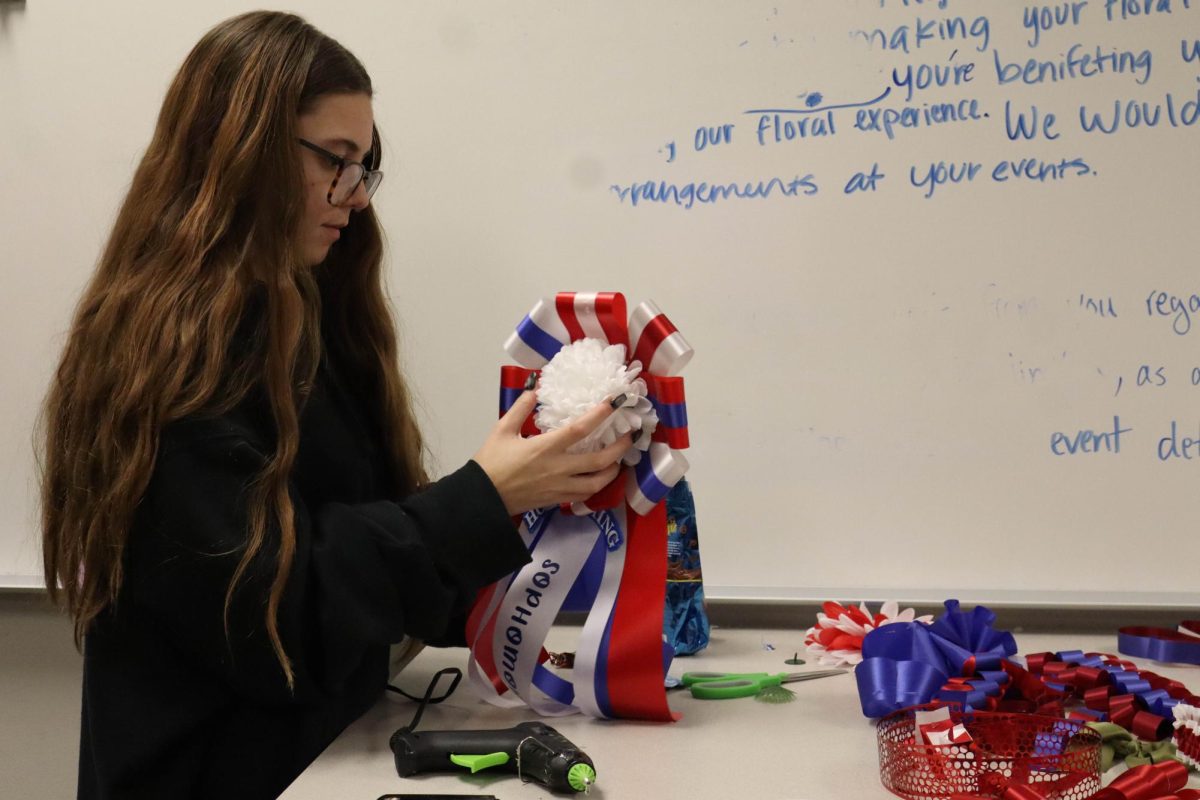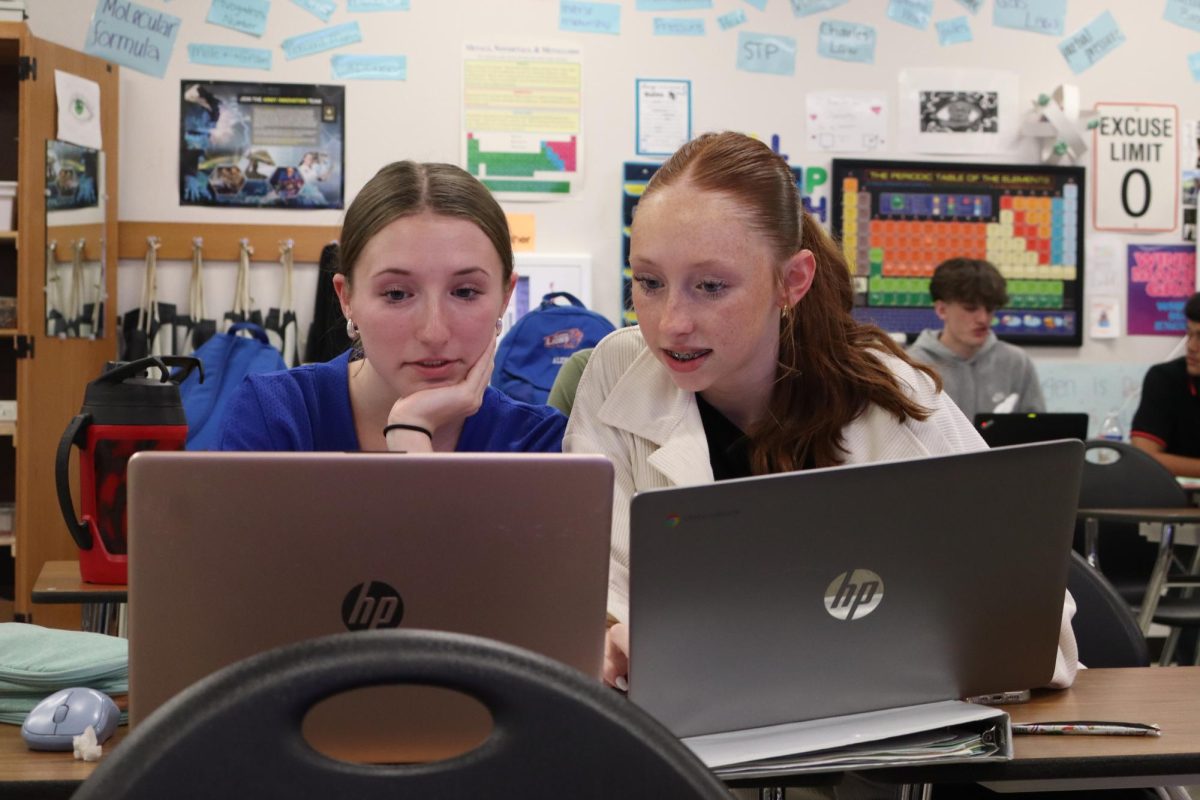The grey, monotone voice ticks in the brain, translating into some concise acronym: IDK, RN, ILY. Like a zombie infection flooding the brain, nonchalance hijacks an entire generation of students. Empathy toward others is killed by indifference.
Scientifically speaking, the later development of the prefrontal cortex likely lends itself to a lack of empathy. This area of the brain provides emotional recognition and regulation and is one of the last to completely develop, coming to a full stop around the age of 25, according to the National Library of Medicine. Thus in some cases, teenagers lack the ability to produce empathetic responses as an involuntary function because the brain has yet to finish growing. Although it is not known why this is the case, the later maturing of this function could answer the riddle of the nonchalant age.
It is not that simple.
If the end-all answer truly resided in the brain’s operations, why then has this detachment reared its ugly head in primarily the younger generations? Perhaps then, it is not the brain, but instead, the sociological mind that must be blamed.
Two factors conjure the beast; to cut off one head is to strengthen the whole monster. Both social media and schools strengthen the indifference of young people. Regardless of whether social media helps or harms the masses, they provide a semi-private space to influence and be influenced. Although punishment for poor behavior on the internet has been threatened for years, very rarely are disciplinary actions taken, either for insufficient evidence, the person’s anonymity, or the fact that it goes unnoticed. This lack of accountability provides young people a place to nurture unapologetic hate. Desensitization to harmful language thus lends itself to a population deadened to empathy.
The second component is the education system. Fueled by the internet’s influence and general resentment toward schools, students disregard the lectures given by counselors and teachers on basic kindness. The effect of ignoring lessons on human decency both demonstrates and detrimentally harms a person’s ability to empathize with their peers.
Nonchalance has seeped itself into a generation deeply entrenched in social media and has and is impacted by students’ perception of school. Although there may be a biological factor involved, the mind proves itself to be more relevant than matter in this discussion.




